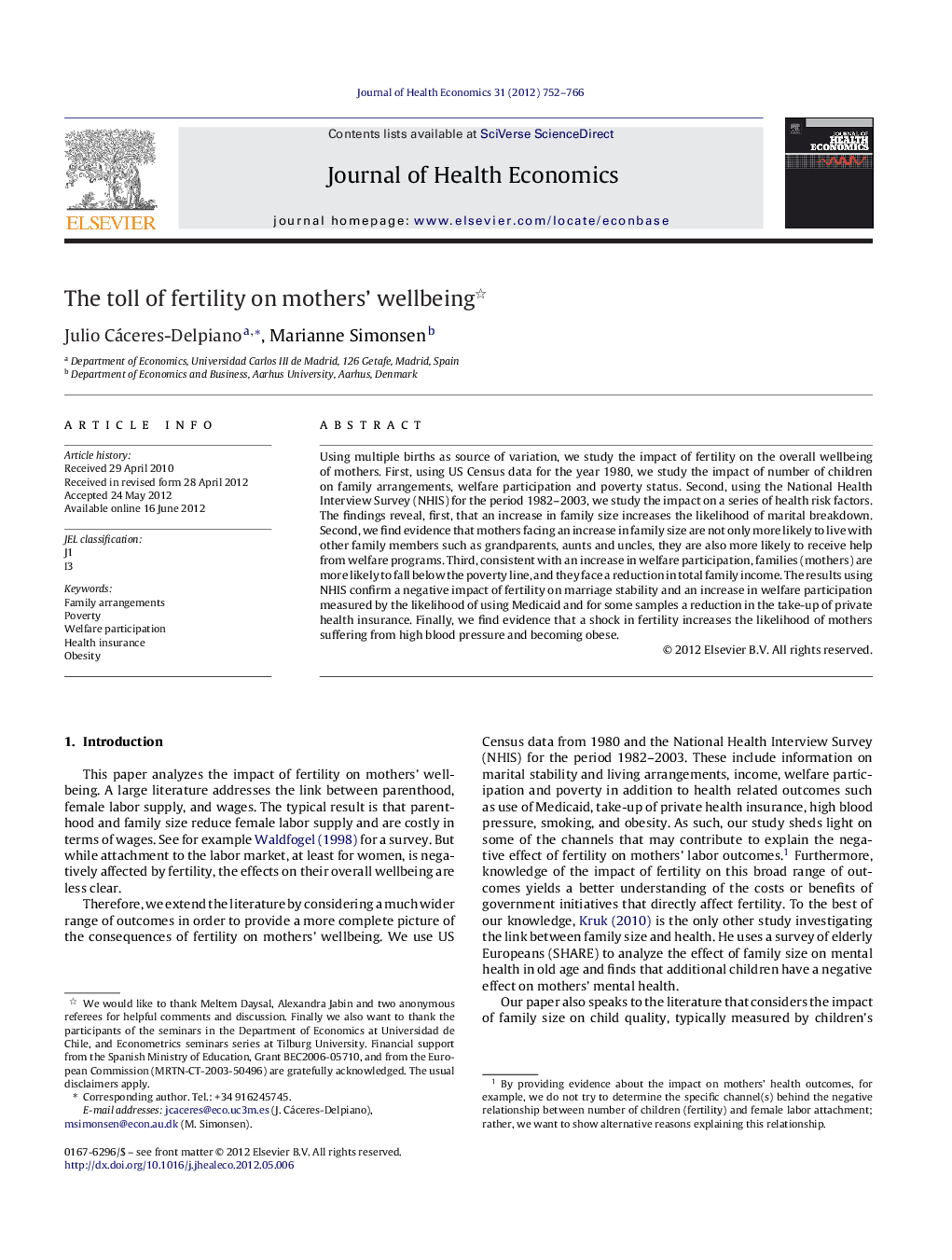| Article ID | Journal | Published Year | Pages | File Type |
|---|---|---|---|---|
| 961791 | Journal of Health Economics | 2012 | 15 Pages |
Abstract
Using multiple births as source of variation, we study the impact of fertility on the overall wellbeing of mothers. First, using US Census data for the year 1980, we study the impact of number of children on family arrangements, welfare participation and poverty status. Second, using the National Health Interview Survey (NHIS) for the period 1982-2003, we study the impact on a series of health risk factors. The findings reveal, first, that an increase in family size increases the likelihood of marital breakdown. Second, we find evidence that mothers facing an increase in family size are not only more likely to live with other family members such as grandparents, aunts and uncles, they are also more likely to receive help from welfare programs. Third, consistent with an increase in welfare participation, families (mothers) are more likely to fall below the poverty line, and they face a reduction in total family income. The results using NHIS confirm a negative impact of fertility on marriage stability and an increase in welfare participation measured by the likelihood of using Medicaid and for some samples a reduction in the take-up of private health insurance. Finally, we find evidence that a shock in fertility increases the likelihood of mothers suffering from high blood pressure and becoming obese.
Related Topics
Health Sciences
Medicine and Dentistry
Public Health and Health Policy
Authors
Julio Cáceres-Delpiano, Marianne Simonsen,
